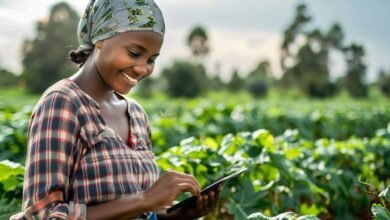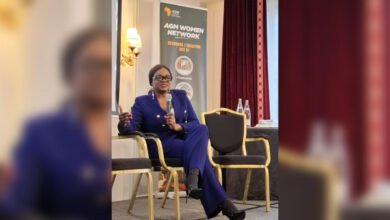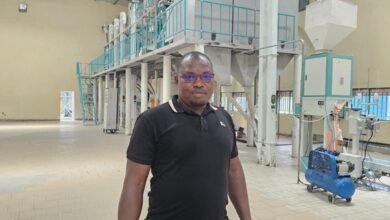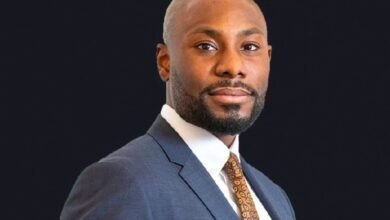Interview : Hani Salem Sonbol “We pin faith on Africa”

As they shift from development assistance to co-development, Middle Eastern countries are increasingly investing in Africa. Challenges and explanations in this interview with Hani Salem Sonbol, CEO of the International Islamic Trade Finance Corporation (ITFC).
Interview by Dounia Ben Mohamed
Could you tell us about the International Islamic Trade Finance Corporation and its missions?
I am the Chief Executive Officer of the International Islamic Trade Finance Corporation, a member of the ISDB Group member. I am also the Acting Chief Executive Officer of the Islamic Corporation for the Development of the Private Sector (ICD). Both institutions are the private sector arm of the Group. The Group consists of three entities, the Islamic Trade Finance Corporation (ITFC)/ Islamic Corporation for the Development of the Private Sector (ICD) and the Islamic Corporation for the Insurance of Investment and Export Credit (ICIEC). So I chair two of them now.
The International Islamic Trade Finance Corporation (ITFC) is a member of the Islamic Development Bank (IsDB) Group. It is dedicated to advancing trade among OIC member countries, ultimately contributing to its overarching goal of improving the socio-economic conditions of people around the world. Starting its operations in January 2008, ITFC has since strengthened all trade finance operations that were managed by different windows of the IsDB Group. The achievement of an A1 rating from Moody’s demonstrates the Corporation’s efficient delivery of services by responding quickly to client needs in a market-driven environment.
Since 2008, ITFC has provided over $51 billion in trade finance to OIC member countries, making the Corporation the leading provider of trade solutions to meet the needs of OIC member countries. By acting as a catalyst for trade development among OIC member countries and beyond, the Corporation provides member country entities with easier access to trade credit and the tools to build their trade capacity, enabling them to compete in the international marketplace.
What about your roadmaps for Africa? What do you want to do, and why?
« Africa is at the heart of ITFC and SID’s strategy »
Africa is in fact at the heart of ITFC and SID’s strategy. We are doing our utmost with the member countries, almost two-thirds of which are from Africa. And they are all founding members of the IFC. Members of the group as well.
And definitely, we accord a high priority to the African continent because they are members, first of all, and then we also believe that Africa has a great potential that is untapped.
We have been working in supporting especially the African continent in terms of financing trade and also providing integrated solutions for African countries to build their capacity and provide the required training and facilitation programs.
We have also launched a number of flagship programs in Africa. One of them is the Arab Africa Trade Bridges (AATB) program. We need to enhance and restore that trade and investment relations between Arab and African countries.
Most of the Arab countries are members of Africa and it is a big program that addresses the main pillars such as insurance, investment, trade and infrastructure. So that program is by itself a very successful program in Africa.
We have also provided support to strategic African sectors, the main one was the energy sector and the second one being agriculture. We are now continuing to support both of these sectors. On the ICT side, we also have many concrete projects in African countries in terms of infrastructure and agri-business industry in Africa.
We have also taken stakes in many banks, Islamic banks in Africa, we have created a real dynamic in Africa. We now continue to support new sectors like the renewable energy and agribusiness industry.
In Morocco, for example, we have financed almost $4.5 billion in trade finance to Morocco. Tunisia, almost close to that with $3.5 billion. We have accumulative approvals from the ICD and IFC and we are reaching $65 billion in financing. Almost 30% of this amount goes to Africa. We are not only focusing on financing, but we are also focused on putting in place flagship programs.
We have the SME development program for Africa in West Africa, especially in Côte d’Ivoire and Burkina Faso, and we also have programs with strategic partners all over the world.
What is your approach in the end: financing projects with high social impact?
We are not only for finances, but we also consider providing important initiatives that are more of an integrated solution. You need financing in Africa, but we don’t know how to use it. So, we would use training and capacity building programs, especially for the SMEs. We have very specialized programs to help them with their bankable projects and documents and so on.
We target banks as well, because the banks need to know how to actually deal with the SMEs and how to evaluate and assess their credit strategy. We have a lot of projects for women and children and youth in Africa, especially the flagship program Seatrade. In that program, we are trying to connect women locally to the markets and also provide platforms for them to show their products. We support handcraft in member countries.
» AfCFTA will change the face of Africa »
Our strategy in Africa actually was revisited after the establishment of the African Continental Free Trade Agreement (AfCFTA). And I think this agreement will change the face of Africa, especially when you talk about the objective integration that is needed between the West and Central African countries. That integration will prevent or reduce at least the export of raw material. We will have more industries in Africa, will have more connections in Africa and I think that we have already started with our partners, especially with the Secretariat of the AfCFTA, implementing, in close coordination with our partners, ITFC, Afreximbank, BADEA. We have already started implementing almost 30 projects under the AfCFTA.
We want the countries to benefit the most and to capitalize actually from this agreement, so that people would be dependent on themselves rather than depending on others.
Therefore, we changed the strategy and we now have new sectors. We have new products. We try to provide as much as we can to become relevant.
My main concern here is actually that we should be resilient and we also see that countries should be resilient. That is why we do provide the support.
In this world plagued by many crises, why, in your opinion, can a closer link between Africa and the Middle East be a solution?
« it’s very important to enhance integration, whether within the African continent or actually between the Arab world and the Middle East and the African countries »
That’s a good question. As I said, it’s very important to enhance integration, whether within the African continent or actually between the Arab world and the Middle East and the African countries. Each will need each other to know that today in this very turbulent world, we need to understand that one of the most important things now is to avoid any disruption to the supply chain. You know, that is happening today, with the closing of borders. We need to work on that.
If the countries understand that we can complement each other rather than compete, I think that would be a good way. We are actually providing this kind of incentive for the African continent to benefit from each other by importing commodities from within the distance from Africa instead of creating it from somewhere else.
We try to enhance the relationship, as I said, through the African Trade Bridge or through the B2B we have conducted. And we are still conducting trade in certain sectors. We bring Arab and African businessmen and we try to connect them together so that they understand, they start to know each other instead of me importing medicine from America, from the US. I could do that from very high-quality products in Saudi Arabia and the UAE, from Jordan and so on.
That is why, I think, this is the only way we need now. Our role is also to adjust these countries to the new agreement requirements. That’s very important.






